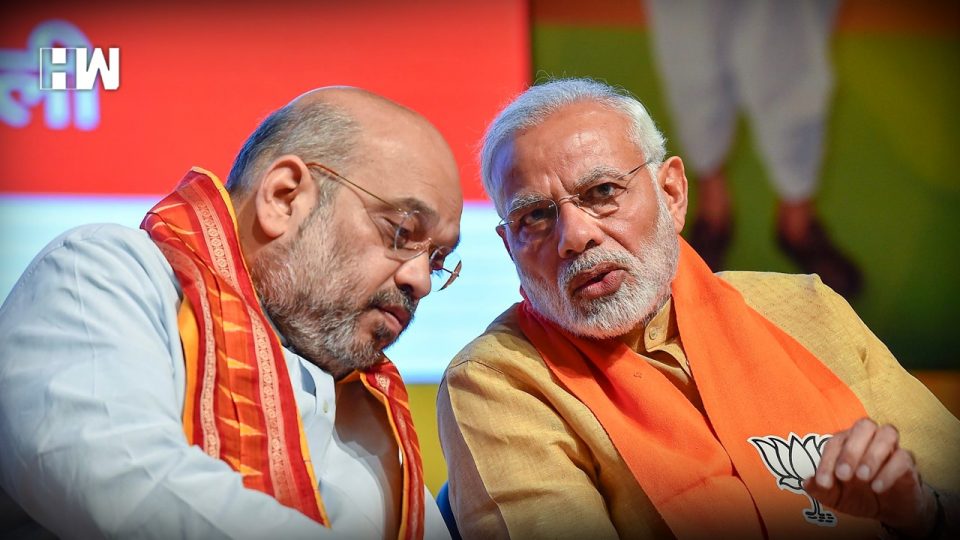The Modi government came to power in 2014, with a catchy promise of minimum government and maximum governance. That was music to the ears of the common man, tormented by the unending red tapism, and the resultant corruption of the all powerful and unchecked bureaucracy. The promise of minimum government did not mean that government departments would be closed down or babus will be retrenched and sacked. It meant that the number of laws and heavy compliance that we are subjected to in our daily lives, livelihood and business are reduced and so would be the resultant harassment. It also meant that unwanted intrusion and surveillance by the government will not take place, without compromising our national security and interests. Namo started well by striking off hundreds of laws, but these were obsolete and redundant ones and had nothing to do with our daily lives. For example a law equated kites with airplanes and needed permission to fly or the one that provided for brushed teeth for car inspectors, or a maximum passenger fare of two annas on a ganga boat ride. with It was an utter hogwash because while the archaic and irrelevant laws were removed, the existing laws that we encounter and which torments us in our daily lives, such as the corporate, business and tax laws, were made much more extensive, more complicated and with a huge compliance cost to boot.
Therefore more and more regulations and forms have been continuously introduced in the Companies Act, which have made its compliance much more difficult and complicated and those who could not do so, now faced the extreme hardship of closure of companies, together with system generated penalty and prosecution. The tax laws too became more and more complex and with the introduction of a complex GST, the ordinary entrepreneur was more involved in filing forms, paying fees and thwarting penalty and prosecution, than earning his livelihood, at the cost of his income, which got depleted in the process. And this got accentuated because of the unending giant corporate scams and ponzis, where the natural response of the government was to make laws even more tougher and enlarged. Moreover, with the NDA government failing on its popular promise of bringing back black money at Rs.15 lac per person, it went on an onslaught to somehow redeem itself by increasing the complexity and reach of tax laws. The popular promise of a minimum government and maximum governance thus turned out to be an empty election slogan.
At this stage we need to understand the interconnected roles of the neta, the law maker and the babu or the sahib, the one who enforces it. It is they who govern our country in tandem. Both are supposed to be public servants, but in reality they are not. They are supposed to keep a cross check on each other, such that public welfare and national interests are not betrayed, which is not happening at the moment. While the babu is inherently driven by instinct to keep introducing new rules and regulations, because the more they are, the more powerful he is, it is the neta, who is required to keep a check on this perverse instinct of the bureaucracy, to prevent mindless regulations and compliance that harasses the public. It is the neta, who by his grass roots connect is expected to know where the shoe pinches the common man, in order to prevent the onslaught of purposeless and mindless regulations, which trouble the lives of the common man, and only perpetuate and extend the babu’s domain.
It is this system cross check that is missing in India today. At a time when a single party and its popular leader has a virtual political monopoly in India, we have few parliamentarians or legislators, who actually understand the welfare and woes of the common man, for they have little grass root connects and even if they do, they have no voice in the party or in the Parliament because of a domineering leadership. That also explains why bills are being passed in the Parliament, without any meaningful discussion and understanding of the new laws being drafted, that certainly suit the interests of the bureaucracy, more than anyone else. This is not the minimum government and maximum governance that was promised. It has only enhanced the powers of the sahib, weakened the neta and made the common man a helpless ghulam, as he witnesses the closure of his entities and decimation of his livelihood.
As an independent media platform, we do not take advertisements from governments and corporate houses. It is you, our readers, who have supported us on our journey to do honest and unbiased journalism. Please contribute, so that we can continue to do the same in future.

